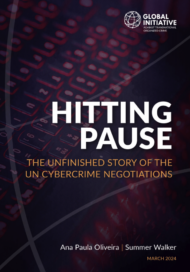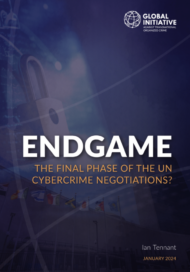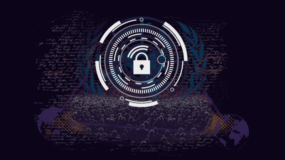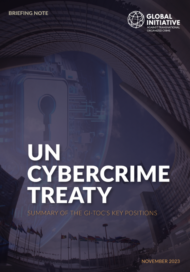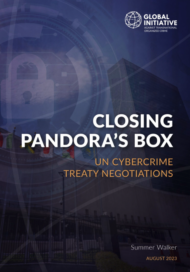Posted on 27 Mar 2024
The attempt by the United Nations (UN) to develop a treaty to address cybercrime – or crimes committed online – has been put on pause.
At the February 2024 concluding session of the Ad Hoc Committee to Elaborate a Comprehensive International Convention on Countering the Use of Information and Communications Technologies for Criminal Purposes (henceforth ‘AHC’) in New York, member states were unable to reach agreement on several substantial issues. A final draft of the treaty therefore cannot be implemented – for now –and the process is on hold.
The issues on which states have not been able to agree after two years of negotiations have left a large question mark over what this convention, or potential convention, fundamentally entails. They include critical unanswered questions, such as the treaty’s scope for preventative measures; the scope for collecting electronic evidence; the question of how human rights and legal safeguards would be protected were the treaty to be enacted; and what kinds of legal activities would be criminalized under its terms. The disagreements over these core components hinged on what types of government intervention – and interference – would be sanctioned by this treaty were it to be adopted. For example, would it allow states to criminalize certain activities that fall beyond the scope of what is ‘normally’ considered to an act of cybercrime, such as ransomware attacks? Could it become, for example, a legal instrument to suppress online dissent?
So, while delegates from all over the world have worked together to come up with a draft a treaty, line by line over the last two years, decisions to determine critical language – and function – of the treaty could not be made. For this reason, the negotiations have been put on hold until possibly July 2024, and maybe even later. At this stage, there are three possible scenarios:
- The first is that funding and UN General Assembly approval are secured for another meeting in July 2024 (or perhaps earlier). If so, delegates would in the meantime work to find consensus, so that at that meeting they would be able to adopt a treaty.
- The second is that funding or agreement is not secured within the UN to continue the process, or governments delay the approval of funds as a political tactic to stall the overall process, and the process gets shelved, meaning there would be no final treaty.
- The third scenario is that a country or group of countries bypass the AHC process and bring a draft to a vote at the General Assembly. This would mean a simple majority would be needed to approve a treaty, and it is unclear which way that vote would go.
This paper analyzes the sticking points that remain, namely the scope of the convention, the extent of human rights protections and the scope for international cooperation on electronic evidence, and assesses the challenge of moving forward with the treaty.
